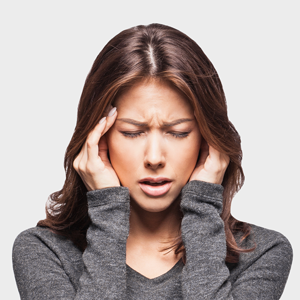Stress Relief
What is stress?
 Many of us complain that we are stressed on a weekly, if not daily, basis. However, prolonged stress over duration of time can have detrimental side effects to your mental and physiological wellbeing. Stress is a normal physical response to events that make you feel threatened or upset your body’s natural balance. When you sense danger-whether it’s real or perceived-your body’s defenses automatically instigate what is known as the “fight or flight” reaction, or the stress response.
Many of us complain that we are stressed on a weekly, if not daily, basis. However, prolonged stress over duration of time can have detrimental side effects to your mental and physiological wellbeing. Stress is a normal physical response to events that make you feel threatened or upset your body’s natural balance. When you sense danger-whether it’s real or perceived-your body’s defenses automatically instigate what is known as the “fight or flight” reaction, or the stress response.
Stress can arise as the result of one major event or the culmination of a series of seemingly insignificant incidents. Listed below are some of the most common causes of stress:
External Causes of Stress
Major life changes, work or school issues, financial problems, relationship difficulties, children and family rifts or arguments, too much work, feeling overwhelmed by your responsibilities. Poor diet and lack of exercise lead to stress too.
Internal Causes of Stress
Chronic worry, pessimism, perfectionism and unrealistic expectations, lack of flexibility in thought process, all-or-nothing attitude, low self-esteem, repressed anger/anxiety about yourself and your future prospects.
The aforementioned causes of stress can manifest themselves as a myriad of different symptoms. Some of these symptoms include:
- Cognitive Symptoms: memory problems, inability to concentrate, poor judgment, negative thoughts, anxious or racing thoughts, and constant worrying.
- Emotional Symptoms: mood swings, irritability, short temper, agitation, inability to relax, feeling overwhelmed, loneliness and isolation, depression, general unhappiness.
- Physical Symptoms: aches and pains, diarrhoea or constipation, chest pain, heart palpitations, frequent bouts of illness.
- Behavioral Symptoms: significant increase or loss of appetite, sleeping too little or too much, isolating yourself from others, neglecting responsibilities, substance abuse (i.e.- alcohol, cigarettes, drugs), habitual nervous traits (i.e. pacing, tapping fingers, nail biting).
When you perceive a threat, your nervous system responds by releasing stress hormones through your body, such as adrenaline and cortisol, which prepare your body for emergency action. This is known as your “fight or flight response” and is your body’s instinctual response to perceived danger. The release of these stress hormones causes your heart to pound faster, your muscles to tighten, raised blood pressure, quickened breath and sharpened senses. Although these physical changes increase your strength and stamina and enhance your focus, chronic stress can also cause prolonged tension and pressure throughout your body.
Subsequently, chiropractic and massage treatment can release this muscle tension and return your body to a functional, balanced and relaxed state.
Utilising state of the art electronic treatment benches, our practitioners can correctly align your spinal column, improve spinal function and blood circulation, thereby alleviate the prolonged muscle tension and contractions caused by chronic stress.
Working with our team of seasoned chiropractors, you can develop healthy responses to stress, thereby enabling your mind and body to heal itself.
As well as Chiropractic care other activities that can help alleviate stress include:
- Breathing exercises and meditation,
- Sports & Therapeutic massage therapy treatments- these treatments have been proven to promote a sense of mental and physiological wellbeing as well as facilitating a relaxing environment wherein you can unwind,
- Acupuncture- To help alleviate your symptoms and bring a sense of calm and relaxation.
- Manage your time more effectively- prioritise important jobs,
- Eat a balanced diet- rich in fruit and vegetables,
- Exercise regularly- scientific research has revealed that continued aerobic exercise on a daily basis releases endorphins from the brain, granting you a feeling of euphoria and well-being. These endorphins provide a natural remedy to stress and depression because of their ability to elevate your mood,
- Get enough sleep- at least 6-8 hours,
- Find out what causes you to feel stressed- try to change your thoughts and behavior to reduce these stressful causes,
- Talk through your issues with a friend or family member- vocalising your issues can help you work out how to overcome them,
- Avoid stressful situations- which are most likely to make you feel angry or upset.
- Make time for the activities you enjoy and for the things that make you feel relaxed – you’re more likely to neglect this area of your life if you’re stressed,
- Socialise with friends and family- do arrange to do something you enjoy.
- Avoid artificial substances- remove your dependency upon artificial substances such as alcohol, cigarettes and caffeine. Using substances as a way to cope with stress will only exacerbate your problems in the long term,
- Think positively!- if you believe you can achieve your goals, you are much less likely to become stressed.
We Can Help
For more information on chiropractic care for your chronic stress, why not call The Bio Mechanix today and begin to revitalise your health and wellbeing!
CONTACT US »

